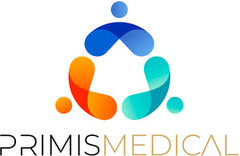As we continue to wake up to headlines dominated by the Covid-19 pandemic, PPE (personal protective equipment) has become a subject of great interest. People all over the world are utilizing PPE to reduce the spread of the virus, but not all PPE is created equal. There are different types of equipment and specific items that are designed for use by healthcare teams. This guide will focus on N95 masks, facepiece respirators, which provide up to 95% filtration efficacy.

What exactly is an N95 mask?
An N95 mask is a respirator mask, which removes 95% of 0.3+ microns. The name of the mask is explained as follows:
- The N stands for Non-Oil and is part of the Respirator Rating Letter Class. Other ratings include R (oil-resistant for 8 hours) and P (oil-proof).
- 95 means that the mask is 95% efficient.
It is possible to buy N95 masks with or without valves. According to the CDC, N95 masks with valves facilitate easier breathing.
What is the difference between N95 and KN95 masks?
If you’ve researched PPE, or you’ve been looking for high-grade face masks, you may have come across both N95 and KN95 masks. The fundamental difference relates to the certification of the mask. N95 masks are certified in the US, while KN95 masks are certified in China.
For most healthcare workers, the main concern when looking for masks is likely to be the percentage of particles captured by the product. With regards to this metric, N95 and KN95 masks are the same, offering 95% efficiency in capturing 0.3 micron particles. The key difference between N95 and KN95 masks lies in testing.
The Chinese Government requires manufacturers to carry out fit tests on human volunteers, while the US Government does not have fit testing procedures in place.
Another important difference is breathability. N95 masks have more stringent requirements related to the pressure decrease while breathing, which makes it easier to breathe while wearing the mask.
For the purposes of international comparisons on PPE, N95 masks are considered to be equivalent to KN95 masks, FFP2 masks from Europe, DS masks from Japan, KMOEL masks from Korea and P2 masks in Australia.
Why is it important to buy NIOSH approved N95 masks and how can I check if my mask is approved?
When you’re shopping for masks, you may have noticed that some products are NIOSH approved. This means that the mask has been officially approved by the National Institute of Occupational Safety and Health (NIOSH). The NIOSH is part of the CDC (Centers for Disease Control and Prevention).
Buying an NIOSH approved N95 face mask is essential for ensuring quality and providing peace of mind. Every item that has been NIOSH approved meets safety standards.
NIOSH approved respirators have an approval number, which is usually found on the label on the packaging, rather than the individual unit. You can also use CDC online resources to check for manufacturers that produce and sell NIOSH approved N95 masks.
How do N95 masks work?
N95 masks work by filtering out tiny particles, known as 0.3 microns. Forming a barrier, the masks prevent particulates and droplets penetrating the mask to protect the individual and others around them.
To function effectively, it’s critical for the mask to form a proper seal, which is facilitated by a close fit. The edges of the mask should fit closely with the contours of the face to form a seal around the mouth and nose.
According to the FDA (Food and Drug Administration), N95 masks are tested for filtration efficacy, fluid resistance, flammability and biocompatibility.
Are N95 masks reusable?
N95 masks are not designed for reuse, but in 2020, healthcare organizations have faced unprecedented challenges caused by the prevalence of the COVID-19 virus and the surge in global demand for PPE. With PPE in short supply, particularly towards the beginning of the year, when the virus started to spread quickly, measures were introduced to relax restrictions and allow for reuse of some items of PPE.
The CDC revised strategies, releasing new guidance on reusing N95 masks in response to shortages, which could have left healthcare workers without the relevant protection. The strategies focused on three scenarios: Conventional, Contingency, and Crisis.
In the Contingency Phase, N95 masks can be reused and worn for long periods of time, but the mask must not be used past the shelf-life specified by the manufacturer. In times of Crisis, masks can be used past the shelf-life and they can be removed and stored for reuse between patients. Face masks should be discarded in cases where the fit is poor, the filtration performance is reduced, there is visible damage or the mask is soiled or contaminated.
How to care for N95 masks
To take full advantage of the benefits of N95 masks, it is essential to take good care of the mask to ensure that it retains both its fit and function. You can protect your N95 mask by wearing a clear face shield or visor and using a safe storage container to keep the respirator as clean as possible.
It is crucial to ensure that masks are thrown away if they are soiled, contaminated or damaged, or the fit is loose.
Where can I find NIOSH approved N95 masks?
If you’re looking to buy NIOSH approved N95 masks, we have a variety of options available. At Primis Medical, we source and sell high-quality PPE for healthcare organizations, hospitals, ambulatory surgery centers, medical practices and long-term care facilities. We offer US stock N95 masks, which are ready to ship today. If you have any questions about our masks, or you need advice related to which types of masks to buy, don’t hesitate to get in touch.






